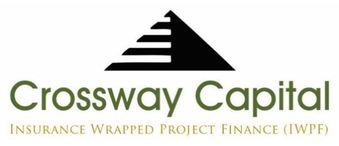Welcome to the Home of Project Finance & Alternative Capital

For Leading the way for private investment in project finance
The traditional role of banks has been overtaken by the numerous channels delivering private capital into the project finance market. These include private capital management and investment firms, wealth managers (many operating from within private banks), UHNWI’s (Ultra-High Net Worth Individuals), Family Offices, sovereign wealth funds and a host of other private capital providers.
They are managing funds with mandates from institutions of all descriptions as well as the great global tide of private wealth now standing at $70 trillion. This is owned by the world’s 20 million millionaires, defined as those with at least one million dollars of disposable or investible wealth over and above all other assets and liabilities, of which 2,500 are billionaires (Sources: Cap Gemini World Wealth Report 2016 and Forbes 2017). They are directing funds into ‘alternative investments’ which are, in reality, your business and project finance needs, and these are the people we work with on a day to day basis.
We are pleased to present our unique Insurance Wrapped Project Finance Program (IWPF). Working directly with a Lloyds of London underwriting syndicate and our London and US based funding partner, this powerful structure delivers unprecedented security and comfort for private debt and equity providers, and sets Crossway Capital apart from all other project finance firms. IWPF effectively endows your project with the Lloyds A/AA credit agency rating making it uniquely attractive to funders. For details, please enquire via our ContactUs page.
Private equity has morphed with venture capital and any number of other funding structures and channels (first identified by OECD in 2006). The only thing any of the structures have in common is that they are all powered by private capital (even pension funds are private capital resourced).
The traditional role of banks has been overtaken by the numerous channels delivering private capital into the project finance market. These include private capital management and investment firms, wealth managers (many operating from within private banks), UHNWI’s (Ultra-High Net Worth Individuals), Family Offices, sovereign wealth funds and a host of other private capital providers.
They are managing funds with mandates from institutions of all descriptions as well as the great global tide of private wealth now standing at $70 trillion. This is owned by the world’s 20 million millionaires, defined as those with at least one million dollars of disposable or investible wealth over and above all other assets and liabilities, of which 2,500 are billionaires (Sources: Cap Gemini World Wealth Report 2016 and Forbes 2017). They are directing funds into ‘alternative investments’ which are, in reality, your business and project finance needs, and these are the people we work with on a day to day basis.
We are pleased to present our unique Insurance Wrapped Project Finance Program (IWPF). Working directly with a Lloyds of London underwriting syndicate and our London and US based funding partner, this powerful structure delivers unprecedented security and comfort for private debt and equity providers, and sets Crossway Capital apart from all other project finance firms. IWPF effectively endows your project with the Lloyds A/AA credit agency rating making it uniquely attractive to funders. For details, please enquire via our ContactUs page.
Private equity has morphed with venture capital and any number of other funding structures and channels (first identified by OECD in 2006). The only thing any of the structures have in common is that they are all powered by private capital (even pension funds are private capital resourced).
Private Equity

Equity capital that is not quoted on a public exchange. Private equity consists of investors and funds that make investments directly into private companies or conduct buyouts of public companies that result in a delisting of public equity.
Capital for private equity is raised from retail and institutional investors, and can be used to fund new technologies, expand working capital within an owned company, make acquisitions, or to strengthen a balance sheet.
The majority of private equity consists of institutional investors and accredited investors who can commit large sums of money for long periods of time. Private equity investments often demand long holding periods to allow for a turnaround of a distressed company or a liquidity event such as an IPO or sale to a public company.
The size of the private equity market has grown steadily since the 1970s. Private equity firms will sometimes pool funds together to take very large public companies private. Many private equity firms conduct what are known as leveraged buyouts (LBOs), where large amounts of debt are issued to fund a large purchase. Private equity firms will then try to improve the financial results and prospects of the company in the hope of reselling the company to another firm or cashing out via an IPO.
Capital for private equity is raised from retail and institutional investors, and can be used to fund new technologies, expand working capital within an owned company, make acquisitions, or to strengthen a balance sheet.
The majority of private equity consists of institutional investors and accredited investors who can commit large sums of money for long periods of time. Private equity investments often demand long holding periods to allow for a turnaround of a distressed company or a liquidity event such as an IPO or sale to a public company.
The size of the private equity market has grown steadily since the 1970s. Private equity firms will sometimes pool funds together to take very large public companies private. Many private equity firms conduct what are known as leveraged buyouts (LBOs), where large amounts of debt are issued to fund a large purchase. Private equity firms will then try to improve the financial results and prospects of the company in the hope of reselling the company to another firm or cashing out via an IPO.
Venture Capital & Seed Capital

Similar to Private Equity Funds but operating at the more risky end of the market. Fallen out of favour with investors in recent times as they tend to spread their risk across the growing number of asset, syndicate and other fund managers.
Money provided by investors to start-up firms and small businesses with perceived long-term growth potential. This is a very important source of funding for start-ups that do not have access to capital markets. It typically entails high risk for the investor, but it has the potential for above-average returns. The amount raised using this method can be anything from $100,000 to millions of dollars.
Venture capital can also include managerial and technical expertise. Most venture capital comes from a group of wealthy investors, investment banks and other financial institutions that pool such investments or partnerships. This form of raising capital is popular among new companies or ventures with limited operating history, which cannot raise funds by issuing debt. The downside for entrepreneurs is that venture capitalists usually get a say in company decisions, in addition to a portion of the equity.
Money provided by investors to start-up firms and small businesses with perceived long-term growth potential. This is a very important source of funding for start-ups that do not have access to capital markets. It typically entails high risk for the investor, but it has the potential for above-average returns. The amount raised using this method can be anything from $100,000 to millions of dollars.
Venture capital can also include managerial and technical expertise. Most venture capital comes from a group of wealthy investors, investment banks and other financial institutions that pool such investments or partnerships. This form of raising capital is popular among new companies or ventures with limited operating history, which cannot raise funds by issuing debt. The downside for entrepreneurs is that venture capitalists usually get a say in company decisions, in addition to a portion of the equity.
Angel Investors or Business Angels

Business Angels are essentially entrepreneurs doing what they instinctively do by way of investing in what they perceive to be a wealth creating opportunity. They do it when the opportunity arises, if that opportunity fits their current outlook and , key to the decision, if it is money they can afford to lose. They would rather invest their money themselves rather than leave it to Fund Managers or Financial Planners.
There are many different Business Angels groups throughout the world, and one has to be 'in the know' or part of this 'inner club' to benefit from their investment dollars.
Alternatively, business advisory groups such as Crossway Capital, can facilitate the process. This can be by way of direct introductions to Investors on our panel, or pitching the investment opportunities to a group of Business Angels.
There are many different Business Angels groups throughout the world, and one has to be 'in the know' or part of this 'inner club' to benefit from their investment dollars.
Alternatively, business advisory groups such as Crossway Capital, can facilitate the process. This can be by way of direct introductions to Investors on our panel, or pitching the investment opportunities to a group of Business Angels.






